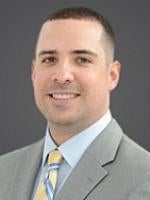In response to many questions about the New Jersey Paid Sick Leave Law, which will go into effect on Monday, October 29, 2018, the New Jersey Department of Labor and Workforce Development (NJDOL) issued a detailed list of answers to frequently asked questions (FAQs) on October 24, 2018. Many of the answers to the FAQs simply restate the provisions of the proposed regulations, but others clarify open questions. Below are some of the more significant clarifications the NJDOL provided (verbatim from the NJDOL’s FAQs). Our own FAQ responses in our three-part blog series provide additional information on the new sick leave law.
II. EMPLOYEES COVERED/NOT COVERED BY THE LAW
. . .
5. Is an employee who works both within New Jersey and outside of New Jersey entitled to receive earned sick leave?
The answer to the question depends largely on how much time the employee spends working in New Jersey. If the employee routinely performs some work in New Jersey and the employee’s base of operations or the place from which such work is directed and controlled is in New Jersey, then the employee is entitled to receive earned sick leave under the Earned Sick Leave Law.
This is the test applied by the Division on Civil Rights in its enforcement of the New Jersey
Family Leave Act. The Department anticipates adopting the same approach through formal rulemaking.
6. When the employee who works both within New Jersey and outside of New Jersey is entitled to receive earned sick leave, because he or she routinely performs some work in New Jersey and the employee’s base of operations or the place from which such work is directed and controlled is in New Jersey, is the employee entitled to all of the earned sick leave required under the law, or may the employer prorate the employee’s earned sick leave entitlement based on the percentage of work performed in New Jersey?
Once it is determined that the employee is covered under the Earned Sick Leave Law, he or she must receive all of the earned sick leave to which one is entitled under the law. The employee would not be permitted to prorate the employee’s earned sick leave entitlement based on the percentage of work performed in New Jersey.
7 Do the same principles as expressed in 6. above relative to employees who work both within New Jersey and outside of New Jersey, apply to a telecommuter who works both from home in New Jersey and for his or her employer on site in another state?
Yes. The telecommuter who routinely performs some work in New Jersey is entitled to full earned sick leave coverage under the Earned Sick Leave Law so long as the employee’s base of operations or the place from which such work is directed and controlled is in New Jersey. The telecommuter who performs all of his or her work in New Jersey will always be entitled to full earned sick leave coverage under the law.
. . .
III. RIGHT TO EARNED SICK LEAVE – HOURS, ACCRUAL
. . .
7. May an employer advance earned sick leave to a part-time employee in an amount less than 40 hours based on the number of hours that the employer anticipates the part-time employee will work during the upcoming benefit year?
Yes. At the beginning of the benefit year, an employer may advance a part-time employee the amount of earned sick leave he or she would accrue at the rate of one hour of earned sick leave for every 30 hours worked based on the hours the employer anticipates the employee will work during the upcoming benefit year. However, if the employer advances the part-time employee fewer than 40 hours of earned sick leave, the employer must still track the employee’s hours worked and the employee’s accrual of earned sick leave during the benefit year, because a part- time employee may work more hours than anticipated.
In the event that the employee does, in fact, work more hours than was anticipated, the employer must allow the employee to accrue earned sick leave at the rate of one hour for every 30 hours worked until the total amount of advanced earned sick leave, plus the amount of accrued earned sick leave reaches the maximum 40 hours for the benefit year. An employee who is advanced less than 40 hours of earned sick leave in a benefit year must be permitted to use up to 40 hours of earned sick leave in the benefit year if he or she has accrued it. An employer who advances an employee fewer than 40 hours of earned sick leave must permit the employee to carry over unused earned sick leave up to the maximum of 40 hours.
8. May an employer prorate advanced earned sick leave for the remainder of the benefit year if an employee commences employment during a benefit year?
Yes. An employer may prorate advanced earned sick leave for the remainder of the benefit year if an employee commences employment during a benefit year, so long as the employer tracks the hours that the employee actually works during the remainder of the benefit year and the amount of resulting earned sick leave accrual, so that in the event the employee works more hours than anticipated, the employer will have sufficient information to allow for the addition of accrued earned sick leave to the already advanced earned sick leave up to the maximum of 40 hours. To avoid tracking accruals, the employer would need to advance the full 40 hours of earned sick leave.
9. May an employer advance 40 hours of earned sick leave to its full-time employees, but use the accrual method for its part-time employees?
Yes. The employer does have that option.
. . .
IV. USE OF SICK LEAVE
. . .
19. Must the employer provide notice to the employee of black-out dates?
Yes. The employer must provide reasonable notice to its employees of black-out dates on which its employees are prohibited from using foreseeable earned sick leave. Although the Earned Sick Leave Law does not expressly require that this notice be in writing, it would be advisable for an employer to provide the notice in writing so that in the event of an investigation by the Department the employer will have evidence of the notice having been provided.
. . .
24. May an employee use earned sick leave in connection with an appointment at his or her child’s school if the appointment is unrelated to the health of the child and if the employee is not the child’s mother?
Yes. Earned sick leave may be used by an employee in connection with a child of the employee, whether or not the employee is the child’s mother, to attend a school-related conference, meeting, function, or other event required by a school administrator, teacher, or other professional staff member responsible for the child’s education, or to attend a meeting regarding care provided to the child in connection with the child’s health condition or disability.
. . .
V. HOW EARNED SICK LEAVE IS PAID
8. How should employers determine the amount of earned sick leave used and required to be paid for employees who routinely have jobs, assignments, projects, or shifts of varying or indeterminate lengths?
For work or shifts of an indeterminate length (e.g. shift until closing or a job that lasts until the required work is completed), employers should base the hours of earned sick leave used and paid on the hours worked by a replacement employee for the same shift. If there is no replacement employee, the hours of earned sick leave should be based on the hours worked by the employee or a similarly situated employee in the same or similar shift in the past.
VI. CARRY-OVER AND PAYOUT OF EARNED SICK LEAVE
2. If a new employee begins work when there are fewer than 120 days left in the benefit year, must the employer carry over the employee’s accrued earned sick leave into the next benefit year?
Yes. If a new employee begins work when there are fewer than 120 days left in the benefit year, the employer must carry over the employee’s accrued earned sick leave into the next benefit year. After 120 days, the employee must be permitted to use his or her accrued earned sick leave, including those days accrued during the previous benefit year and carried over to the current benefit year.
. . .
6. If the carry-over of earned sick leave from one benefit year to the next results in the accumulation of an earned sick leave balance of more than 40 hours in a benefit year, is the employer required to permit the employee to use more than 40 hours of earned sick leave in a benefit year. For example, if the employer advances the employee 40 hours of earned sick leave in Year 1; the employee only uses 20 hours of earned sick leave in Year 1; the employee carries over 20 hours of unused earned sick leave from Year 1 to Year 2; the employee is advanced 40 hours of earned sick leave at the beginning of Year 2, resulting in a Year 2 starting balance of 60 hours of earned sick leave; is the employer required to permit the employee to use 60 hours of earned sick leave in Year 2?
No. Under the express terms of the Earned Sick Leave Law, the employer is never required to permit the employee to use more than 40 hours of earned sick leave in any benefit year. That said, the Earned Sick Leave Law also permits employers to agree through a collective bargaining agreement or employer policy, to provide rights or benefits which are more favorable to employees than those required by the Earned Sick Leave Law. In the event that an employer determines that it would be in the best interests of both the employer and its employees to permit employees to use more than 40 hours of earned sick leave in a benefit year during which the employee has accumulated in excess of 40 hours of earned sick leave through a combination of carry-over of earned sick leave from the prior year and advancing of earned sick leave or accrual of earned sick leave in the current benefit year, then the employer may permit employees to use more than 40 hours of earned sick leave in a benefit year.
VII. OTHER PAID TIME OFF (PTO) POLICIES
1. Can other PTO policies satisfy the requirements of the earned sick leave law?
Yes, so long as the PTO meets or exceeds all of the requirements of the earned sick leave law and may be used for the purposes listed within the earned sick leave law. For example, some employers allow employees PTO for other purposes, such as vacation or personal leave. The employer is not required to provide additional time designated for earned sick leave if the vacation or personal leave days may be used for earned sick leave and the employer’s policy meets all requirements of the law.
2. Is an employer with a compliant PTO policy required to retain records documenting hours worked, earned sick leave accrued, used, paid, paid out and carried over?
The employer with a compliant PTO policy need not retain separate records documenting the accrual, use, payment, payout and carry-over of leave taken for purposes covered under the Earned Sick Leave Law; that is, the employer is not required to keep such records separate from records documenting leave taken for other purposes under the PTO policy. However, the employer with a compliant PTO policy must for the five-year period specified in the law retain records of the accrual, use, payment, payout and carry-over of their employees’ PTO so as to allow the Department during a possible inspection to confirm that the employer is continuing to comply with the requirements of the Earned Sick Leave Law relative to the PTO policy.”
3. The Earned Sick Leave Law states that an employer who offers a PTO policy, which is fully paid (including but not limited to personal days, vacation days and sick days), where the PTO may be used for the purposes listed in the law and in the manner provided in the law and is accrued at a rate equal to or greater than the rate described in the law, that PTO policy is compliant with the law. If an employer has such a PTO policy, is the employer required to record hours of leave used for the purposes listed in the Earned Sick Leave Law separately from hours of leave used for other purposes under the PTO policy. For example, would the employer be required to record leave used by an employee for a typical vacation separate from leave used to care for an ill family member?
No, the employer who has a compliant PTO policy is not required to record leave used for purposes covered under the Earned Sick Leave Law separate from leave used for other purposes. Thus, in the example cited above, both the vacation leave and the leave to care for an ill family member would simply be recorded as PTO.
4. If an employer has an existing PTO policy that provides in excess of the 40 hours required under the Earned Sick Leave Law; for example, if the PTO program provides for 80 hours of PTO, and where under the existing PTO policy an employee had never been permitted to carry over PTO from one benefit year to the next; if after the Earned Sick Leave Law goes into effect the employee uses 40 hours of PTO in a given benefit year, must the employer permit the employee to carry-over the remaining 40 hours of PTO to the next benefit year, or is the carry-over requirement in the Earned Sick Leave Law extinguished by the employee’s use of 40 hours of PTO in a single benefit year?
In a compliant PTO policy where the employer chooses to advance PTO, rather than have the employee accrue PTO, in the final month of the employer’s benefit year, the employer must either provide the employee a payout for the full amount of unused PTO (up to 40 hours) or permit the employee to carry-over any unused PTO, except that the employer is not required to permit the employee to carry forward from one benefit year to the next more than 40 hours of PTO. Thus, in the example cited above, the employer would be required to permit the employee to carry-over the remaining 40 hours of PTO; which is to say, the carry-over requirement would not be extinguished by the employee’s use of 40 hours of PTO in a single benefit year. That said, however, as mentioned elsewhere in these FAQs, the Earned Sick Leave Law also expressly states that an employer shall not be required to permit the employee to use in any benefit year more than 40 hours of earned sick leave. Consequently, in the example cited above, although the employer would be required to permit the carry-over of the remaining 40 hours of PTO, the employer would not be required to permit the use of more than 40 hours of PTO in any benefit year. That said, as mentioned in an earlier FAQ, the Earned Sick Leave Law also permits employers to agree through a collective bargaining agreement or employer policy, to provide rights or benefits which are more favorable to employees than those required by the Earned Sick Leave Law. In the event that an employer determines that it would be in the best interests of both the employer and its employees to permit employees to use more than 40 hours of PTO in a benefit year during which the employee has accumulated in excess of 40 hours of PTO through a combination of carry-over of PTO from the prior year and advancing of PTO or accrual of PTO in the current benefit year, then the employer may permit employees to use more than 40 hours of PTO in a benefit year.
5. Under a compliant PTO policy, where an employee exhausts his or her PTO during the benefit year, but where none of the leave taken during the benefit year was for any of the purposes set forth within the Earned Sick Leave Law, is the employer required to payout 40 hours of earned sick leave at the conclusion of the benefit year or permit the carry-over of 40 hours of earned sick leave to the next benefit year?
No. Relative to payout and carrying over, the employer with a complaint PTO policy is required only to treat the PTO in the same manner as the law requires earned sick leave be treated. If the employee has exhausted his or her PTO during the benefit year, it does not matter for what purpose under the compliant PTO policy the leave was taken. Regardless of the reason(s) for the leave, there is no PTO to be paid out or carried over and no such payout or carry over would be required.”
VIII. OTHER FEDERAL AND STATE LAWS RELATED TO LEAVE TIME
. . .
4. Can an employee’s use of earned sick leave be counted toward leave entitlements under other laws?
Yes. An employee’s use of earned sick leave may be counted toward concurrent leave under federal or state law, such as the FMLA and the NJFLA.





 />i
/>i

